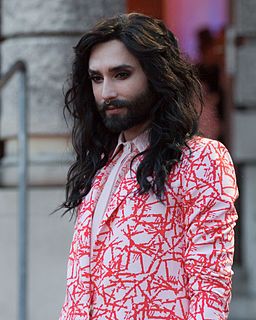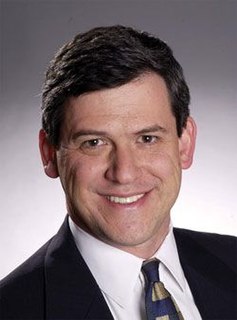Цитата Кондолизы Райс
Нам есть о чем поговорить с русскими, несмотря на их вмешательство в наши выборы. Надеюсь, они говорят о том, как положить конец этому ужасающему гуманитарному кризису в Сирии, положить конец этой войне. У русских больше рычагов воздействия, чем у нас. Надеюсь, речь идет о том, что если ракеты большой дальности Ким Чен Ына когда-нибудь долетят до Аляски, то они смогут долететь и до Владивостока.
Темы цитат
Связанные цитаты
Я не говорю о слепом оптимизме, такой надежде, которая просто игнорирует грандиозность предстоящих задач или препятствия, стоящие на нашем пути. Я не говорю о желаемом за действительное идеализме, который позволяет нам просто сидеть в стороне или уклоняться от драки. Я всегда считал, что надежда — это та упрямая вещь внутри нас, которая настаивает, несмотря на все доказательства обратного, что нас ждет нечто лучшее, пока у нас есть мужество продолжать достигать, продолжать работать, продолжать бороться.
Люди говорят о [Башаре] Асаде, управляющем Сирией. Он не контролирует свою страну. Он составляет около 20, 25 процентов территории страны. Что это за вымысел, что он каким-то образом единственный человек, который может спасти Сирию? Там - с Асадом есть, Сирии нет. Вот на чем иранцам и русским действительно нужно сосредоточиться.
Она [Хиллари Клинтон] хорошо знает людей. Я думаю, что есть - вы знаете, также разговоры о разрушении барьеров и разговоры об этом, говорим ли мы об этом с экономической точки зрения. Я имею в виду, что она единственный человек, который говорил о белых привилегиях и говорил о своего рода пересечении некоторых из этих проблем.
Я думаю, что русские в основном не думают, что у северокорейцев и иранцев есть возможности получить системы оружия, которые могут им угрожать, или что, если они это сделают, русские знают, как с ними обращаться, и это причина того, что это тем более важно чтобы русские были вовлечены в продажу высокотехнологичных обычных вооружений, ядерный реактор в Бушере в случае России и Ирана и подобные виды отношений.
То, что происходит в Сирии, — это худший гуманитарный кризис со времен Второй мировой войны. И мы наказываем тех, кто больше всего страдает в этих обстоятельствах, в этом состоянии. Мы проверяем беженцев из Сирии на период от 18 до 24 месяцев, прежде чем им разрешат приехать в Соединенные Штаты. И знаете, если позволите, я думаю, к тому времени, когда они прибудут, мы знаем о них больше, чем о финансах президента.
Часть странности возвращения с войны заключается в том, как мы об этом говорим. Мы стараемся вести дискуссию о войне, которая не превращается в дискуссию о той или иной политической стороне. Я хотел протянуть руку и поговорить с людьми об этом через вымысел, как повествование может привлечь кого-то и задать им эти вопросы.
Я думаю, что работа, которую еще предстоит сделать — и я вижу ее конец на данный момент — это просто отпустить ситуацию и перестать говорить об этом. Это определенно «перестаньте говорить о размерах». Я не прихожу домой к своей девушке и не говорю: «Привет, я твой большой друг, давай поговорим о важных вещах». Это не тема для разговоров внутри моей группы друзей - я готов для общества, Голливуда, прессы, журналов, всех, просто догнать и сказать: «Эти женщины такие же, как женщины, которых мы использовали так долго». . Давайте просто бросим их в дело и перестанем говорить об этом».










































